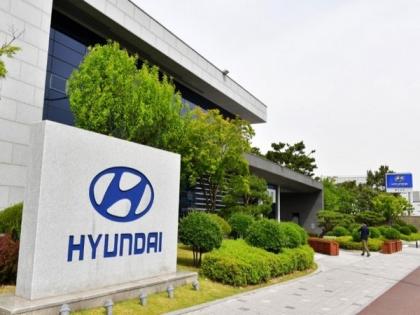Hyundai Motor and Kia's market share decreased from 3.1 pc to 2.1 pc in Chinese market
By ANI | Published: December 13, 2021 02:24 AM2021-12-13T02:24:46+5:302021-12-13T02:35:07+5:30
Sales of Hyundai Motor and Kia have continued to decrease in the Chinese market.

Hyundai Motor and Kia's market share decreased from 3.1 pc to 2.1 pc in Chinese market
Sales of Hyundai Motor and Kia have continued to decrease in the Chinese market.
According to the China Passenger Car Association (CPCA) on the 10th, Hyundai Motor and Kia's combined share of the Chinese market fell 1 per cent from 3.1 per cent (2.2 per cent for Hyundai Motor, 0.9 per cent for Kia) in November last year to 2.1 per cent (1.4 per cent Hyundai Motor, 0.7 per cent Kia) in November this year.
Last month, retail sales of automobiles decreased by 13 per cent year-on-year to 1,845,000 units in the Chinese market. The sales of passenger cars (including sedans, SUVs, and MPVs) fell 13 per cent to 1,816,000 units and commercial vehicles fell to 28,000 units, similar to last year.
However, Hyundai Motor and Kia's performance was far below the market average.
Retail sales of Hyundai Motor Beijing fell 42 per cent year-on-year to 26,000 units in November, and Dongfeng Kia fell 30 per cent to 13,000 units.
Sales of Hyundai Motor Group have significantly decreased in the Chinese market since the 2016 THAAD crisis. Hyundai Motor is reorganizing the local business organizations by selling its Beijing plant 1, Hyundai Motor's first global production plant.
Hyundai Motor released various new models and launched the Genesis brand to boost sales in the Chinese market, which has a strong influence in the global electric vehicle (EV) market. However, the performance has continued to be sluggish, with only 69 units of the strategic EV model 'Mistra EV,' released earlier this year, sold from March to September.
On the other hand, EV manufacturers such as Tesla and BYD and China's Geely Automobile saw strong sales performance.
Tesla and BYD sold 32,000 units and 90,000 units, respectively, in November. The market share of Tesla was 1.7 per cent (+0.7 per cent) and BYD was 5.0 per cent (+3.7 per cent). Sales of Geely Automobile fell 12per cent, but the market share increased by 0.1 points.
Japanese and European brands also showed a decline in the market share.
Song Seon-jae, an analyst from Hana Financial Investment, said, "The retail sales in China decreased by 13 per cent year-on-year in November. This was effected by various factors such as chip shortages, COVID-19 pandemic, and drop in consumption demand due to the recession."
Song said, "The production disruptions caused by semiconductor shortages have been relatively resolved. CPCA expects the component shortages to be further alleviated." (ANI/Global Economic)
( With inputs from ANI )
Disclaimer: This post has been auto-published from an agency feed without any modifications to the text and has not been reviewed by an editor
Open in app